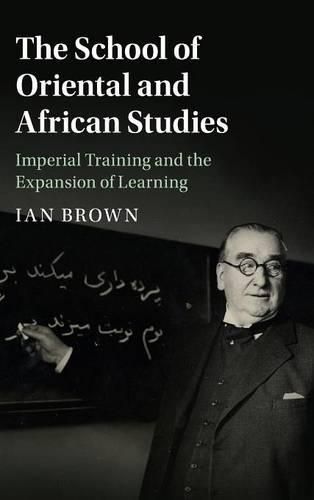Readings Newsletter
Become a Readings Member to make your shopping experience even easier.
Sign in or sign up for free!
You’re not far away from qualifying for FREE standard shipping within Australia
You’ve qualified for FREE standard shipping within Australia
The cart is loading…






The School of Oriental and African Studies, a college of the University of London, was established in 1916 principally to train the colonial administrators who ran the British Empire in the languages of Asia and Africa. It was founded, that is, with an explicitly imperial purpose. Yet the School would come to transcend this function to become a world centre of scholarship and learning, in many important ways challenging that imperial origin. Drawing on the School’s own extensive administrative records, on interviews with current and past staff, and on the records of government departments, Ian Brown explores the work of the School over its first century. He considers the expansion in the School’s configuration of studies from the initial focus on languages, its changing relationships with government, and the major contributions that have been made by the School to scholarly and public understandings of Asia, Africa, and the Middle East.
$9.00 standard shipping within Australia
FREE standard shipping within Australia for orders over $100.00
Express & International shipping calculated at checkout
The School of Oriental and African Studies, a college of the University of London, was established in 1916 principally to train the colonial administrators who ran the British Empire in the languages of Asia and Africa. It was founded, that is, with an explicitly imperial purpose. Yet the School would come to transcend this function to become a world centre of scholarship and learning, in many important ways challenging that imperial origin. Drawing on the School’s own extensive administrative records, on interviews with current and past staff, and on the records of government departments, Ian Brown explores the work of the School over its first century. He considers the expansion in the School’s configuration of studies from the initial focus on languages, its changing relationships with government, and the major contributions that have been made by the School to scholarly and public understandings of Asia, Africa, and the Middle East.